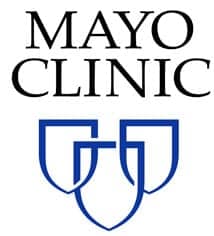By Ed Edelson
HealthDay Reporter
(HealthDay News) — According to an article in US News & World Report, low-level laser therapy appears to ease a common form of neck pain, a review of studies finds.
The publication quotes Jan M. Bjordal, a professor of physiotherapy at Bergen University College, Norway, a member of an international team reporting the review in the November 13 online issue of The Lancet as saying "It is effective against nonspecific pain arising from the muscles and the joints, where there is not a clear cause, such as a herniated disc."
The group, led by Roberta Chow, MBBS, of the Brain and Mind Research Institute at the University of Sydney, Australia, surveyed data from 16 controlled trials with a total of 820 people treated for neck pain, using a 100-point scale to determine the difference between results of different treatments.
There were two trials for acute neck pain. Those who received low-level laser therapy, in which a beam of focused radiation in the infrared to visual light portion of the spectrum is aimed at the painful area of the neck, were 70% more likely to report reduced pain than those given placebo treatment with a beam of ordinary light, the report said.
Five trials with people suffering chronic, persistent neck pain found that those who got laser treatment were four times more likely to have reduced pain compared with placebo. In 11 trials of chronic pain, 20-point reductions were reported by people given laser therapy.
Seven of those trials provided follow-up data for as long as 22 weeks. Pain relief persisted, with few or no side effects reported.
Neck pain is predicted to be a medical problem of increasing importance in the United States and other countries because of a growing population of older people, so a treatment that does not require drugs and has no apparent side effects is attractive.
But it’s necessary to be cautious about the reported results, said Andrew Sherman, MD, head of medical rehabilitation at the Spine Institute at the University of Miami Miller School of Medicine.
"It is true that neck pain is an increasingly difficult problem in our society," Sherman is quoted as having said in the article. "Such a problem is best treated with a large-population, double-blind placebo-controlled study."
The FDA has approved a laser device for treating neck pain. But that approval differs from approval of a medication, which requires poof that the drug is safe and effective. Device approval indicates only that the technology is safe.
Medical insurance coverage of laser therapy for pain differs from country to country, Bjordal said. "In some countries, it gets reimbursed if done by physical therapists," he said. In others, it is not covered. In the United States, Medicare does not cover the laser therapy.
[Source: US News & World Report]




